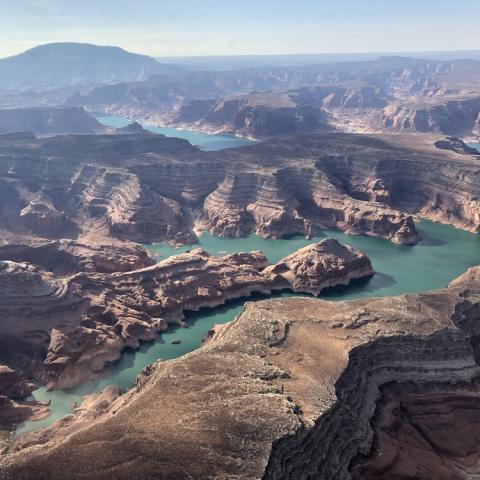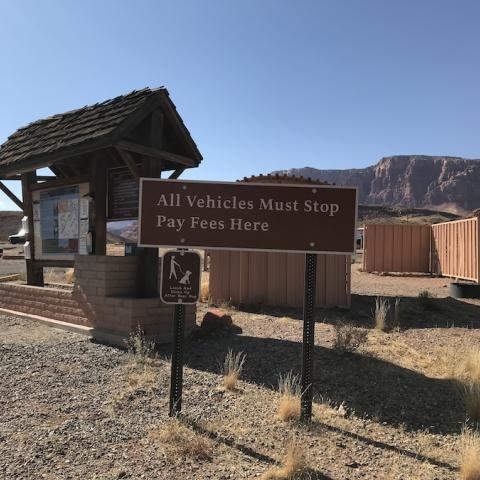
Quagga mussel decontamination station at Wahweap in Glen Canyon National Recreation Area/NPS.
Since 2017, the National Park Service has redoubled its efforts to work with states in the West to contain quagga mussels through the Safeguarding the West from Invasive Mussels initiative. These efforts have not gone unnoticed, and in early January 2019 the Colorado River Fish and Wildlife Council sent a letter to the Department of the Interior recognizing specific National Park Service staff and parks for their tireless efforts to try to control aquatic invasive species.
According to the United States Geological Survey, "quaggas are prodigious water filterers, removing substantial amounts of phytoplankton and suspended particulate from the water... By removing the phytoplankton, quaggas in turn decrease the food source for zooplankton, therefore altering the food web."
John Wullschleger, National Park Service fish program / aquatic invasive species lead, is leading the charge to contain aquatic invasive species (AIS), but he credits a large, dedicated team from Glen Canyon, Lake Mead, and Curecanti national recreation areas with the progress they’ve made so far. Wullschleger secured additional funding to combat AIS, and he guided development of the servicewide strategic plan for invasive mussels as well as the servicewide communication plan for quagga mussels.
In spite of those efforts, however, some areas of Glen Canyon NRA are becoming undesirable with visitors because of the great numbers of quagga mussels.
"They ruin a lot of recreation areas that people typically like to visit just because they’re no longer really usable," Nathan Owens, the aquatic invasive species coordinator for Utah's Division of Wildlife Resources, told the Traveler last summer. "That’s kind of what we’re starting to see in a few areas at Lake Powell for the first time. I’ve been told by boaters, they’ve tried to pull up to land but they didn’t want to walk out because it was covered in mussels and they didn’t want to get cut up. So they just ended up going somewhere else."
That said, Superintendent Billy Shott, Colleen Allen, and other staff at Glen Canyon National Recreation Area have made huge strides to contain mussels from their waters and keep them from spreading into other water bodies. More seasonal inspectors and additional lighting has expanded the capacity and streamlined the process to inspect watercraft. They’ve also coordinated messaging with Utah Division of Wildlife Resources and staffing and scheduling with the Arizona Game and Fish Department.
The Council also called out the staff at Lake Mead National Recreation Area, including Mark Sappington, for their work to contain AIS. With a focus on increasing decontaminations, Lake Mead has made an effort to strengthen partnerships with the Arizona Game and Fish Department and the Nevada Department of Wildlife. They’ve improved coordination with concessionaires and professional fishing tournaments to address mussel abatement, as well as updated and increased outreach materials for visitors.



 Support Essential Coverage of Essential Places
Support Essential Coverage of Essential Places






